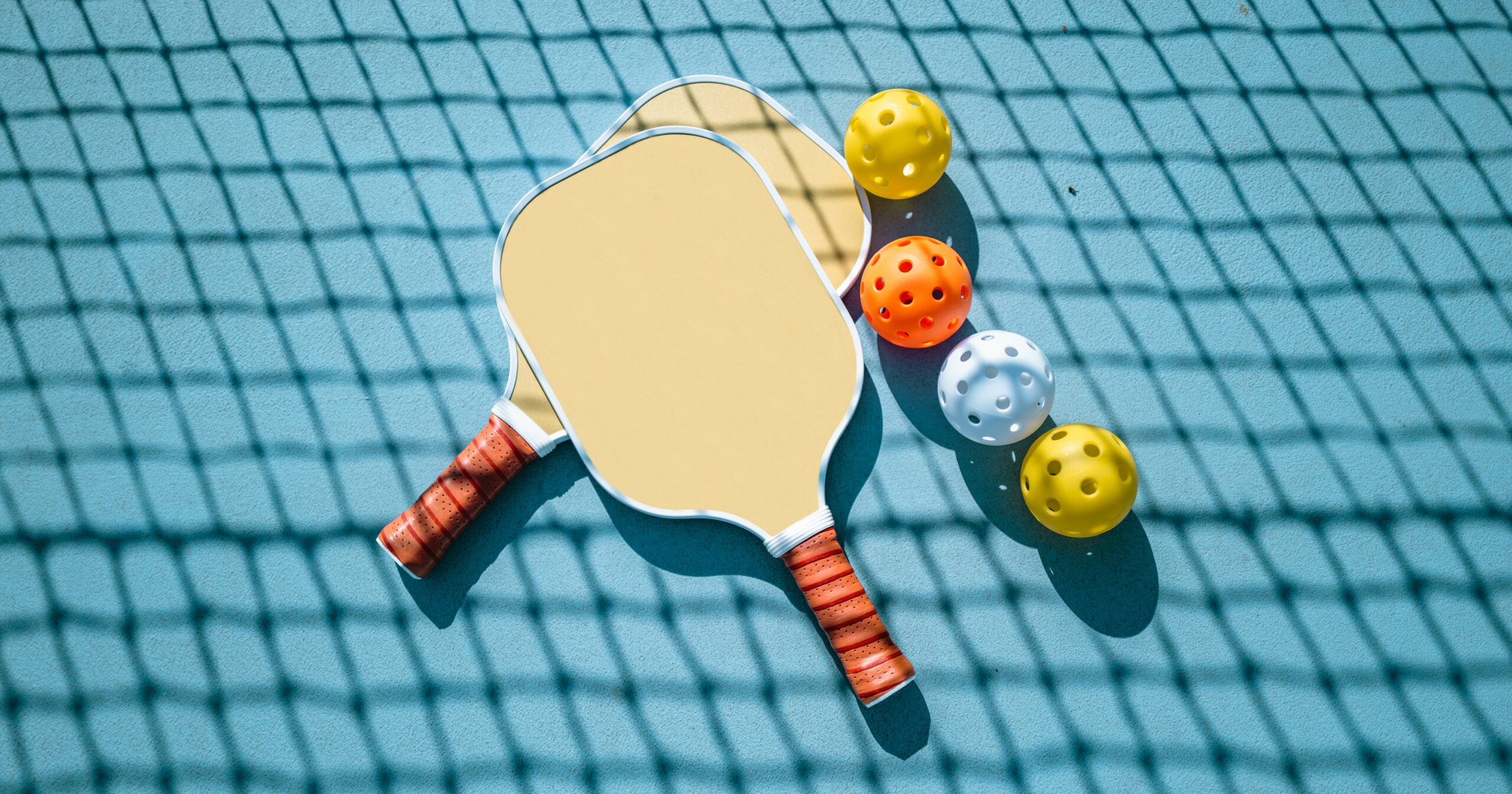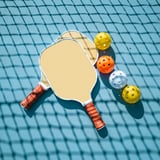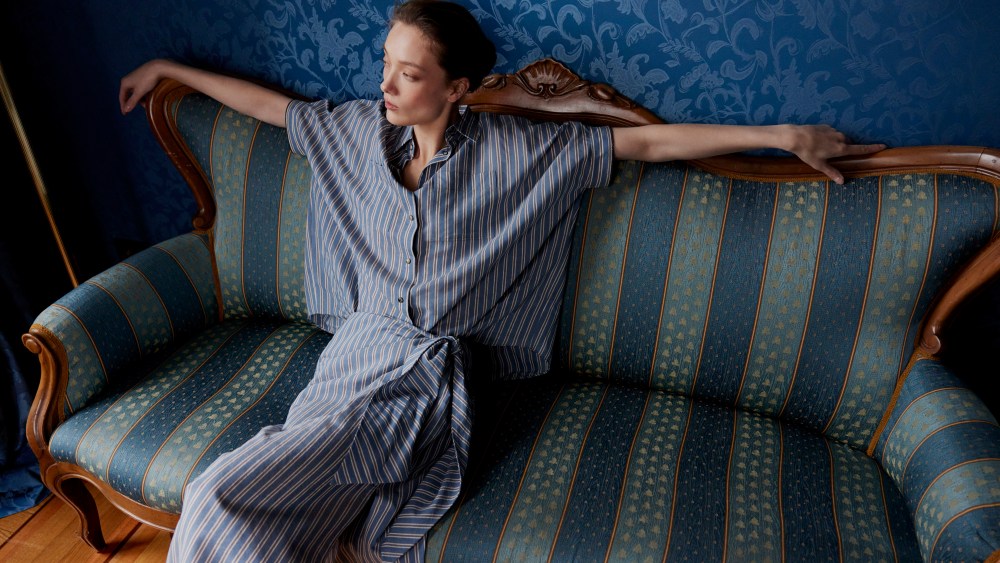To be fair, I thought I had everything prepared for my first proper attempt at crocheting.
There were the materials, purchased from a flea market, and a physical copy of the pattern I was to follow, plus step-by-step refresher guides bookmarked on my laptop. I went as far as blocking out my Google Calendar for the session, thinking a simple pop-up notification on my screens could switch my brain on. Turns out I missed the important thing of all: the will to start.
My spools of yarn and steel hooks have since gathered dust next to the rest of my discarded hobbies: the boxing gloves, the running shoes, the pamphlets for pottery classes. Being someone who picks up hobbies only to throw them away after they’ve lost their novelty feels like an unforgivable fault, given what I see daily on social media. Our broader cultural emphasis on wellness pressures us adults to lead well-rounded lives, measuring and optimizing our performance even in our free time. Yet, despite my best efforts, I really can’t seem to start (or keep) a hobby.
If I prefer something that isn’t particularly new or exciting, does this deem me a failure at fun? I spoke to experts to figure it out.
Experts Featured in This Article
Sarah Pressman, PhD, is associate dean of undergraduate education and professor of psychological science at the University of California, Irvine.
What Constitutes a Hobby?
Not everyone may have a structured, long-term hobby – and that’s perfectly OK. “What a lot of people do in their downtime is better described as ‘casual leisure,'” says Sarah Pressman, PhD, associate dean of undergraduate education and professor of psychological science at the University of California, Irvine. “These pleasurable activities don’t require a significant level of skill development or long-term commitment, such as relaxing, napping, and passively binge-watching shows.”
Provided that they don’t exacerbate existing feelings of ennui, these activities can have their own benefits. “They can still involve active engagement, such as critical thinking, emotional connection, and social interaction,” she says. Think of how enriching watching shows or movies becomes as the experience is shared, or how playing with our dogs can easily make the day of both master and mutt.
Hobbies are often seen as a sign of a balanced and fulfilling life, so the absence of them can make individuals feel inadequate.
But what constitutes a hobby looks vastly different online: activities are pursued more for their shareability, rather than enjoyment. Creative writing major Renea Valdez relates to this, as someone who loves organizing spreadsheets. “I first used it for tracking my expenses, savings, and income. But later, I realized I could use them to keep track of things like the work [in my portfolio] or my [movie, book, and TV show] recommendations,” she says.
Back when she was still experimenting with a roster of hobbies, Valdez would experience bouts of FOMO from trying to keep up. But since then, she’s learned to be content with what she truly loves doing. “Yes, this isn’t the usual type you would see on Instagram grids, but that only makes this activity feel more personal to me,” she says. “It gives me a sense of achievement and joy to have created something valuable and tailored to my own needs. It encourages productivity, which is rewarding to me even without external validation.”
Can Your Hobbies Look Similar to Your Work?
Another mandate often seen on social media is a clear separation between work and leisure. “Hobbies are often seen as a sign of a balanced and fulfilling life, so the absence of them can make individuals feel inadequate or as if they’re not making the most of their time,” Dr. Pressman says. Without an enriching life outside of the 9-to-5, individuals are said to be more prone to burnout, among other physical and mental health issues.
Jodie Sanchez initially struggled with this as a casual video editor who pursued creative direction for her day job. “I was too focused on the deliverables given to me that I couldn’t produce content for myself anymore. Constantly having to conceptualize and edit videos end-to-end really burnt me out,” she says. Since moving to a company that has granted her more flexibility, she’s been in a much happier place and is creating for clients and for herself. “Though there are times when I’m in the mood to dabble in a bit of my past hobbies, nothing ever feels as fulfilling as making videos for me – and I’m fine with that!”
Contrary to popular belief, it’s perfectly natural and healthy to enjoy work-related tasks in a leisure context. In fact, having a fulfilling job can reduce the need for hobbies because it meets many of the same set of psychological needs. Dr. Pressman cites the theory of self-determination as criteria for assessment: “activities that satisfy our basic needs for autonomy, relatedness, and competence contribute significantly to our well-being,” she says. Notice how there is no mention of these occurring only within a specific context.
Rather than prioritizing breadth over depth, hobbyists can immerse themselves in their true craft of choice by picking up new techniques, attending workshops or forums, or building a passion project outside the workplace. As Sanchez says, “I don’t even get the pressure to find a new hobby anymore because what I know now [about video editing] is just the tip of the iceberg. I still have years and years of knowledge left to acquire.”
How to Embrace the Trial and Error of Finding Hobbies
Of course, this isn’t meant to discourage anyone from discovering their ideal pastime. Those who want to can and should, as it comes with obvious physical, mental, and social benefits. But it’s worth remembering that in a world that demands excellence from even our most frivolous pursuits, there’s a certain satisfaction in refusing to commit to a singular area of expertise.
Product designer Angel Vino is just like me (in more ways than one), having dabbled in almost every art form in the book: she says she’s tried sewing, resin crafts, jewelry making, and crepe paper flower arrangement. “But not all of them stuck because of factors like expenses, location sensitivity, the time and space it consumes at home, and even having no immediate satisfaction,” she adds.
Rather than finding fault with her abandoned hobbies, Vino takes it as an opportunity to continue exploring what would truly stimulate her. Today, it’s graphic design and running – but she’s not closing her doors to anything else. “I consider the attempt a fun and quirky part of my artistic self, something that diversifies me and turns me into a jack of all trades,” she says.
For those still discovering their passions, Dr. Pressman advises keeping a curious and open mind. Try a variety of activities without the pressure of perfection: there is no imaginary audience watching until you broadcast it publicly, so don’t feel the need to rush yourself. “Even then, regularly assess why you are sharing your hobby online,” she advises. “While seeking external validation isn’t inherently unhealthy, it’s important to ensure it doesn’t overshadow your intrinsic enjoyment or lead to negative feelings if you don’t get the response you want.”
Needless to say, regardless of which public platform we share them on, our hobbies are supposed to be a highly personal undertaking: a source of respite in our stressful existence and not its cause. Instead of following some blueprint we never even received, We should choose whatever keeps us happy, confident, and busy. If you ask me, right now, that sounds like curling up in bed with either a good book or a blank Google Doc. Maybe one day, I’ll attend a class or watch a video and come across something that excites me just as much. But if I don’t, there’s absolutely nothing wrong with that.
Angel Martinez is a Manila-based culture writer, consumer researcher, and content strategist. Her work on the internet, identity, and their intersections has been published in Vice, i-D, Vox, and Business Insider, among others.




